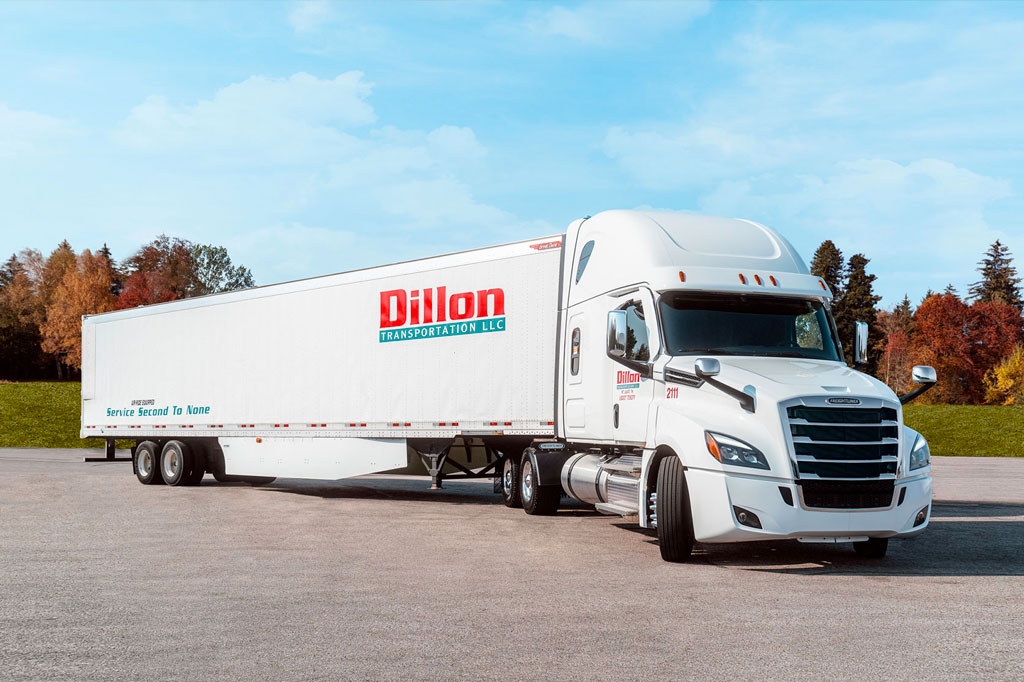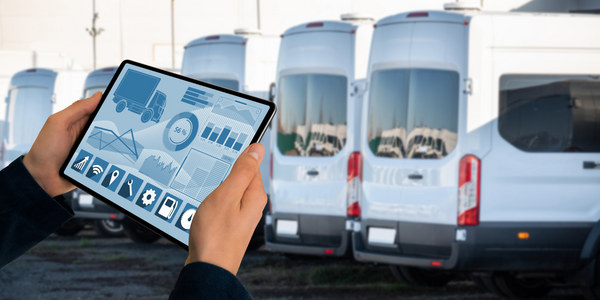Download PDF
Scalability Through IoT: Dillon Transportation's Growth with Innovative Access

Technology Category
- Functional Applications - Fleet Management Systems (FMS)
- Functional Applications - Transportation Management Systems (TMS)
Applicable Industries
- Specialty Vehicles
- Transportation
Applicable Functions
- Logistics & Transportation
Use Cases
- Public Transportation Management
- Transportation Simulation
Services
- System Integration
The Challenge
Dillon Transportation, a dry van transportation company, experienced significant growth since its inception in 1996. From a humble beginning with one truck and two drivers, the company expanded to a fleet of 125 trucks and 170 drivers and crew members. However, this rapid growth brought about a challenge. The owner, Donnie Dillon, found it increasingly difficult to keep track of every driver and truck in his fleet. He could no longer remember the specifics of each trip, which he previously kept in his head. The company needed a more sophisticated way of storing information about drivers and loads. They required a system that would allow employees to access the specifics of each trip easily. The challenge was to find a solution that could manage the growing complexity of their operations.
The Customer
Dillon Transportation
About The Customer
Dillon Transportation is a dry van transportation company based in Mt. Juliet, Tennessee. Founded in 1996 by Donnie Dillon, the company started with a single truck and two drivers. Over the years, it has experienced significant growth, expanding its operations to Arizona and growing its fleet to 125 trucks with 170 drivers and crew members. Despite its growth, the company retains its roots in Tennessee. Dillon Transportation prides itself on its strong business relationships and commitment to moving freight for its customers efficiently and effectively.
The Solution
Dillon Transportation turned to Innovative Access from Trimble Transportation, a Software-as-a-Service (SaaS) platform. This solution provided full visibility into driver performance and freight movement, streamlining the company's processes. The software offered several valuable benefits, including the ability to calculate fuel taxes, forecast late deliveries, and push day-of-delivery billing. The implementation of the software was smooth, staying within scope and budget. Trimble staff members provided responsive and patient support as Dillon Transportation's crew learned the new software. The company later upgraded to Innovative Access Plus, which offered additional modules to support further growth.
Operational Impact
Quantitative Benefit
Related Case Studies.

Case Study
Transformation for IoT Business Model in Connected Industrial Vehicles
CNH Industrial wanted to put IoT-enabled viechles onto the market. Whether monitoring a single machine or integrating an entire fleet, operators are able to track the status, speed, and movement of machines and their performance and also receive alerts on issues that may require service by a qualified technician to improve uptime and overall effectiveness of the vehicle.

Case Study
Airport SCADA Systems Improve Service Levels
Modern airports are one of the busiest environments on Earth and rely on process automation equipment to ensure service operators achieve their KPIs. Increasingly airport SCADA systems are being used to control all aspects of the operation and associated facilities. This is because unplanned system downtime can cost dearly, both in terms of reduced revenues and the associated loss of customer satisfaction due to inevitable travel inconvenience and disruption.

Case Study
IoT-based Fleet Intelligence Innovation
Speed to market is precious for DRVR, a rapidly growing start-up company. With a business model dependent on reliable mobile data, managers were spending their lives trying to negotiate data roaming deals with mobile network operators in different countries. And, even then, service quality was a constant concern.

Case Study
Digitize Railway with Deutsche Bahn
To reduce maintenance costs and delay-causing failures for Deutsche Bahn. They need manual measurements by a position measurement system based on custom-made MEMS sensor clusters, which allow autonomous and continuous monitoring with wireless data transmission and long battery. They were looking for data pre-processing solution in the sensor and machine learning algorithms in the cloud so as to detect critical wear.

Case Study
Cold Chain Transportation and Refrigerated Fleet Management System
1) Create a digital connected transportation solution to retrofit cold chain trailers with real-time tracking and controls. 2) Prevent multi-million dollar losses due to theft or spoilage. 3) Deliver a digital chain-of-custody solution for door to door load monitoring and security. 4) Provide a trusted multi-fleet solution in a single application with granular data and access controls.






